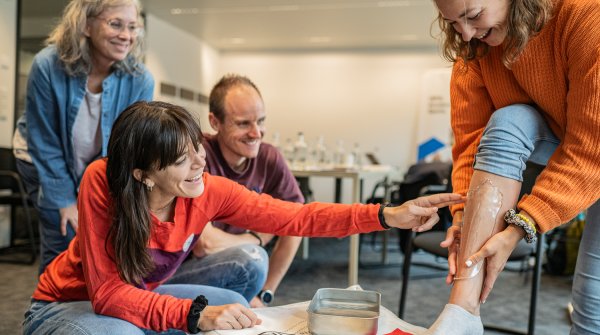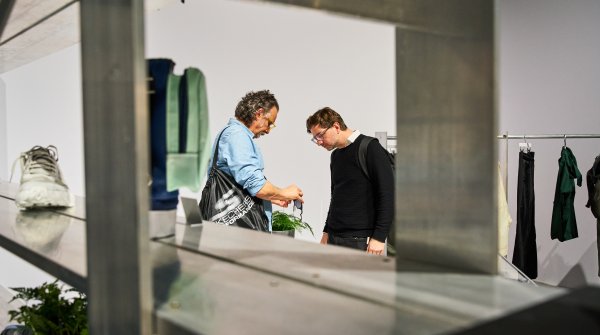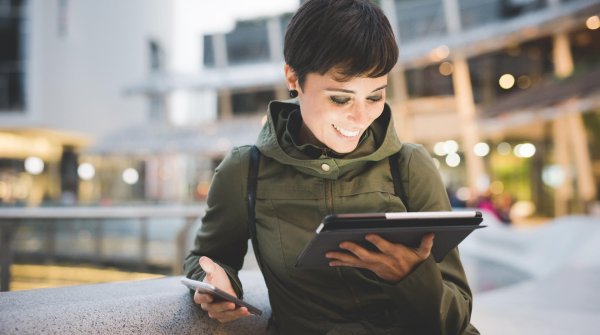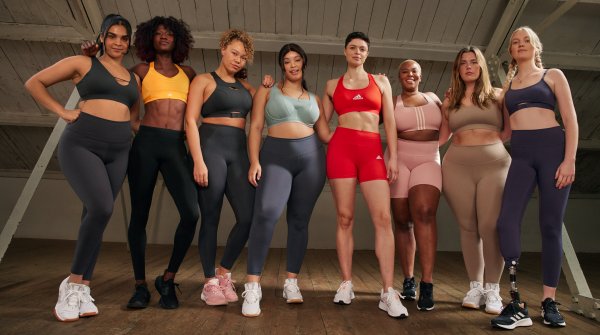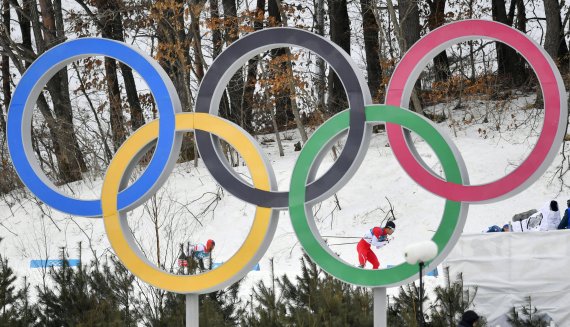
Eric Frenzel, the German Olympic flag carrier, is pulling a really smart trick. He is having his column on various channels written by his wife, Laura, during the time of the Olympic Games in Pyeongchang.
That way the Frenzel family earns a little extra money and, at the same time, does not breach the rigid marketing regulations of the International Olympic Committee (IOC). They are part of the Olympic Charter and each athlete has to accept them if they want to take part in the Games. Exclusion from the Olympic Games threatens if they are breached.
It is written word for word in Section 40.3 that “no competitor, team official or other team personnel who participates in the Olympic Games may allow his person, name, picture or sports performances to be used for advertising purposes during the Olympic Games, except as permitted by the IOC.” This rule protects the gigantic TV and advertising income of the IOC – in the period of the last Olympic Games from 2013 to 2016, this amounted to a total of 5.7 billion US Dollars – and it gags the athletes.
This literally means that any advertising is forbidden in a precisely defined period covering the whole of February with these Winter Games. But there are improvements in sight. The IOC has slightly relaxed the interpretation of its rules internationally, and in Germany a process is currently running with the Federal Cartel Office to ensure further improvements for the sports stars already today. They are already allowed to do more than their international colleagues.
“Generic advertising as part of the athletes’ currently running advertising contracts is now inherently allowed in the period of the Olympic Games,” said Florian Frank, Head of Marketing at the German Olympic Sports Confederation (DOSB). This means, for example, that Rossignol may also continue to advertise, at least in Germany, with the German Alpine star and Kitzbühel champion, Thomas Dreßen during the Pyeongchang period.
But no reference of any kind may be made to the Olympic Games. All the terminology and symbols in connection with the Olympics are forbidden. This also includes social media hashtags such as #teamdeutschland or #pyeongchang2018, just as much as the Gold/Silver/Bronze Medals, Winter Games or the Olympic motto “Citius, Altius, Fortius”.
Sounds complicated, and it is too. Especially as the continuation of advertising measures during these Winter Games must be additionally approved by the DOSB. The relevant DOSB Guidelines with precise explanations for the athletes covers 34 pages. “There were 160 applications from athletes in this connection and we haven’t refused any of them,” said Mr. Frank.
Of course it is absolutely necessary for the German athletes to also continue to wear the appropriate clothing of the German team from Adidas, its general sponsor in the Olympic period in Pyeongchang. The exceptions are the competitions – this is where the relevant sports association decides what is allowed.
So of course the Alpine star, Thomas Dreßen, speeds into the valley on his branded Rossignol skis and the Bogner logo can clearly be seen on his ski suit. The size of the logos must be agreed with the IOC, and the athletes may not otherwise advertise in any way.
But things look different on their social media channels. Athletes may share or retweet contents from the IOC, the POCOG (the Olympic Organizing Committee), the DOSB and Team Deutschland there, as well as send greetings or thanks to their sponsors. That was still not allowed at the 2016 Summer Games in Rio.
This special relaxation for German athletes is a first result of a currently running antitrust law process. Its introduction has been attributed to a complaint from the Federal Association of the German Sports Article Industry (the BSI).
BSI General Manager Nicole Espey: “In our view, the effort that the IOC puts into sponsorship protection with rule 40 of the IOC Charter is not necessary and difficult to understand.” Or, to put it differently, the athletes and their sponsors are severely disadvantaged with the rules that currently apply. Ultimately the Olympics is the largest stage on which they can present themselves.
Currently the highest German guardians of the market are carrying out a survey of associations, athletes and sponsors, which in this case should be used as a basis for a final decision. Max Hartung, spokesperson for the German athletes, believes that a “financial compensation for the athletes could result from this during the Olympic period, or a relaxing of the advertising rules during the Olympics.”
Ultimately the athletes are the stars of the Games; without them the IOC could only dream of their current billions in revenues. It looks highly likely that Eric Frenzel, the German flag carrier at the Olympic Games in Beijing in 2022, will be able to write his column (for example in his homeland newspaper) himself, and his wife, Laura will have more time for their three children and the family …

 Sports BusinessSki Mountaineering Goes Olympic: What Milano-Cortina 2026 Means
Sports BusinessSki Mountaineering Goes Olympic: What Milano-Cortina 2026 Means
- ISPO awards
- Mountain sports
- Bike
- Design
- Retail
- Fitness
- Health
- ISPO Job Market
- ISPO Munich
- ISPO Shanghai
- Running
- Brands
- Sustainability
- Olympia
- OutDoor
- Promotion
- Sports Business
- ISPO Textrends
- Triathlon
- Water sports
- Winter sports
- eSports
- SportsTech
- OutDoor by ISPO
- Heroes
- Transformation
- Sport Fashion
- Urban Culture
- Challenges of a CEO
- Trade fairs
- Sports
- Find the Balance
- Product reviews
- Newsletter Exclusive Area
- Magazine
